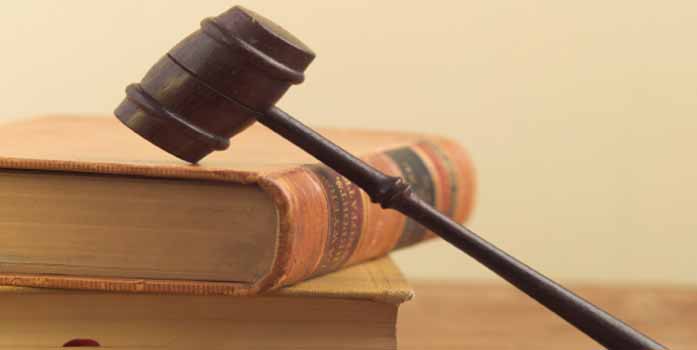By Terri Jo Neff |
A civil rights lawsuit has been filed by two Arizona nonprofits in hopes of having the recently passed Voters’ Right To Know Act aka Proposition 211 declared unconstitutional.
The Arizona Free Enterprise Club (AFEC) and the Center for Arizona Policy have joined forces to seek a preliminary injunction barring implementation of Prop 211 while the case is litigated. The groups are represented by the Scharf-Norton Center for Constitutional Litigation at the Goldwater Institute.
In announcing Thursday’s lawsuit, AFEC issued a statement which argues that Arizona voters “were misled into passing Prop 211” by supporters like former Arizona Attorney General Terry Goddard who railed against the vague threat of “dark money” in the state’s elections.
Prop 211 received more yes votes than no votes in all 15 counties, and easily passed by more than 1 million votes. But the plaintiffs insist the new law jeopardizes and interferes with the right of all Americans to freely support campaigns and causes in Arizona without being intimidated.
The Voters’ Right To Know Act requires all entities and persons spending more than $50,000 in “campaign media spending” on statewide campaigns (or $25,000 on other campaigns) excluding personal monies and business income to disclose the original donors of any contribution over $5,000.
The Act involves the disclosure of those donors’ names, mailing addresses, and occupations. It also requires disclosure of the identities of those donors’ employers.
“This is just another attempt to target, harass, and dox conservatives who won’t submit to the Left’s agenda,” the AFEC statement reads. “And if you don’t think this happens, think again.”
The statement notes the experiences of its own staff “who have received numerous phone calls and voicemails threatening violence—including one staff member whose car was vandalized for engaging in public communications on our behalf.”
As required by state law, the Plaintiffs were required to provide notice to the Arizona Attorney General, the Speaker of the Arizona House of Representatives, and the President of the Arizona Senate that they are seeking to have Prop 211 declared unconstitutional.
There is recent precedent for the legal arguments put forth by the Goldwater Institute for the plaintiffs. A U.S. Supreme Court decision last year in Americans for Prosperity v. Bonta struck down a similar law in California on the grounds that the First Amendment protects the freedom to anonymously support organizations and nonprofits.
A central theme of the Arizona lawsuit against Prop 211 is the guarantee in the state Constitution that citizens have the right to speak freely, a right even broader than what is guaranteed under the First Amendment of the U.S. Constitution.
The lawsuit notes the Arizona Constitution expressly guarantees that an individual’s “private affairs” will not be disturbed, particularly those that pertain to financial information and one’s choices when casting a ballot.
“Transparency is for government; privacy is for individuals,” the lawsuit argues.
Another problem with Prop 211, according to the lawsuit, is its definition of campaign media spending to include any public communication which “promotes, supports, attacks, or opposes” a candidate within six months of an election or “refers” to a candidate 90 days before a primary election.
That overly broad language means any article, blog, or social media post by groups like AFEC or Center for Arizona Policy about something as commonplace as a vote by a lawmaker could trigger compliance with the new law if that lawmaker is running for office or opts to soon after the communication.
“And if you think that by simply avoiding traditional campaign media spending (sending out a mailer, airing a TV commercial, etc.) will protect you from Prop 211, think again,” the AFEC statement notes. That is because the new law applies to all “research, design, production…or any other activity conducted in preparation for” a public communication about a candidate.
“Since writing articles and producing social media posts have a cost, we would have to calculate and regularly track how much staff time and office resources are used to produce these materials,” the statement notes.
Such an onerous level of accounting would force AFEC to drastically limit its public communications—even if a communications are not campaign related—“to avoid the absurd dragnet and complex regulatory labyrinth established by this Act,” the group noted.
Joining AFEC and Center for Arizona Policy as plaintiffs are “Plaintiff Doe I” and “Plaintiff Doe II,” both described as Arizona citizens and Maricopa County residents. The Doe plaintiffs allege that it is unconstitutional to require them to “reveal his or her identity when donating to charitable organizations that engage in public communications supporting issues and candidates” the two support.
Their lawsuit has been assigned to Judge John Hannah of the Maricopa County Superior Court. The defendants include Arizona Secretary of State Katie Hobbs as well as the Arizona Clean Elections Commission, its executive director, and its five commissioners.
It is the Clean Elections Commission which is tasked with establishing and interpreting the new standards outlined in Prop 211. The Commission has often been at odds with AFEC in past ballot initiatives and litigation, including one case in which the U.S. Supreme Court significantly reduced the Commission’s power.
Terri Jo Neff is a reporter for AZ Free News. Follow her latest on Twitter, or send her news tips here.








